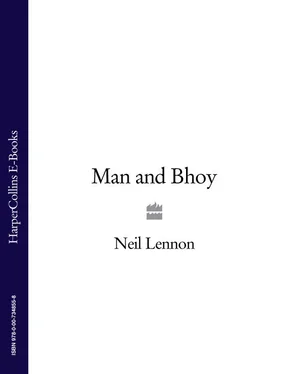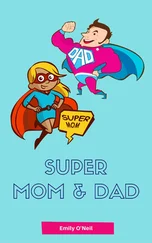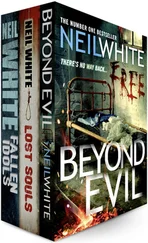It was often forgotten in the aftermath of what transpired that I had actually captained Northern Ireland before. We played the Republic of Ireland in 1999 in a benefit match and at one point in the second half there was a raft of substitutions. The manager at the time, Lawrie McMenemy, was a good and decent man who did what he thought was right rather than convenient. Lawrie would later recall: ‘My over-riding memory was when I gave the armband to Neil after I brought off my skipper. He could barely keep his chest inside his shirt and was as proud as punch.’
I was indeed very proud, just as I was thrilled to bits when Lawrie made me captain from the start in an away match against Finland. But I was still at Leicester then. This time I was a Celtic player and that was to make all the difference.
When Sammy told me early in the week of the Cyprus match that I was going to be captain I was delighted. We were installed as usual in the Hilton hotel in Templepatrick and were doing our routine of training and discussing tactics, but it all took on a different dimension for me on the Monday when I was appointed captain.
Sammy went public with the news the night before the match and all the newspapers carried his statements explaining his reasons.
’He is my sixth captain,’ he was quoted as saying. ‘With no disrespect to Neil, being the sixth captain shows you the problems we have had. Hopefully, things will change. He is the second most-capped player in the current squad. Being in the engine room he can start us off with his passing and knowledge of the game.
’Neil is a leader; he has been captain for Celtic as well. It’s a good honour for him. I hope he enjoys it and that his performance rubs off on the rest of the lads.’
I certainly was honoured, and my family were also proud and delighted for me. At a press conference I emphasized that the unpleasant events of the Norway game were in the past and that I preferred to look forward. I said honestly that it had been difficult for me at the time, but I had put it all behind me, and added the thought that being named captain was a nice way to start the season.
The political situation in Northern Ireland had also changed. It was now more than four years on from the Good Friday Agreement, and I thought there was genuine goodwill on all sides. But one man in a phone box many miles away thought differently.
It all went pear shaped late in the afternoon. We were having our pre-match meal and I had just come down to the tables when Sammy took me to one side. He told me straightforwardly that there were two police officers from the newly named Police Service of Northern Ireland (PSNI) outside wanting to talk to me.
I asked him what it was about, and he told me there had been a phone call and I would have to talk to the officers—one male and one female—about it. I knew immediately what the call was, and my heart sank into my boots. For in the run-up to the match I knew I was ‘fair game’ for any madman wanting to make a point and I had anticipated someone trying to get publicity for their ‘cause’, especially after it was announced that I would captain the side. But I had not thought it would go as far as someone threatening my life.
The two police officers—as is the accepted protocol in writing about Northern Ireland, they must remain anonymous—were very matter of fact. They said that there had been a telephone call to the BBC’s offices in Belfast by someone who claimed to represent the LVF. The threat was that if I played that night I would get hurt. Without it being needed to be said, we all knew that in all probability ‘hurt’ meant getting shot.
I asked the officers how genuine the threat was and they said that nine out of ten of these calls prior to sporting events were hoaxes.
They were firm, however, that they could not tell me what to do. That decision would have to be mine and they would react accordingly. I presumed that meant if I decided to play I would get armed police escorts to and from the game etc., but my immediate thought was how would anyone be able to stop someone getting to me in the many public areas I would enter that night, not least the Windsor Park pitch?
My first reaction, nevertheless, was that I should play on. The percentage bet was that the whole thing was a hoax and I would be safe. But a whole whirlwind of thoughts started coursing through my mind, the vast majority of which centred on my family and their safety. And finally it came down to this—how much of a bet do you take with your life?
This time Sammy McIlroy reacted well and sympathetically. He said that if the call had been about his son, he would want him to go home.
My mind was in turmoil at that second. I really didn’t know what to do and I knew I needed advice.
I used my mobile phone to call Celtic’s security adviser in Scotland—unfortunately, I knew him only too well as I had had reason to call him previously—and he was adamant that I should take no chances whatsoever and should get back to Glasgow as soon as possible.
I then called my parents. My father said that of course I could not play and he would come and get me. He rushed to the hotel and was angered that no one could tell him where I was. He eventually made his way to my room where I was just finishing packing. A few minutes later I was in his car and on my way home to Lurgan. We had a police escort at first but then some friends met us and we travelled in convoy for the rest of the journey. I have not been back to Windsor Park since…and Dad still has his unused complimentary tickets for the match in which I didn’t captain Northern Ireland.
Before I left the hotel, I told Sammy that I probably would not be returning to play for the national side ever again. He was entirely understanding but said he hoped I would change my mind. I then spoke to most of the rest of the squad. I learned later that one or two had wanted the Irish FA to pull the team out of the match, but I insisted before the match that they should go on and do their best. My thoughts genuinely were for the team as I knew they had a tough campaign ahead and needed the match practice.
It was agreed that the Irish FA would put out my press statement and that there would be a cover story that I was already on the way back to Glasgow. In reality, there was no way to catch a plane home at that time and I would have to spend a night in Lurgan.
My statement read: ‘After close consultation with the footballing authorities and the Police Service of Northern Ireland I will not be participating in this evening’s international game.
’I am very disappointed that my desire to play for my country, on my first opportunity to captain my team at home, has been taken away from me.’
In the car on the way to Lurgan, my father and I talked things over. He was very angry, of course, as was I, but funnily enough I was a bit more philosophical.
In a sense there was an inevitability about these events. For better or worse, I had become a controversial figure, both in Scotland and in Northern Ireland. I was a symbol for one side, the epitome of what was wanted in a Celtic man dedicated to the club he loved, whereas for the other side I was something to despise. I could see that the two sides would never meet on common ground, and that there would always be extremists who simply could not tolerate my presence in a Northern Ireland jersey.
My main thoughts were for my family. It was hard enough for them when I joined Celtic, and the graffiti before the Norway game had been an awful experience for them. My father told me that ‘a cold chill’ had gripped him when he first saw the pictures. So I just could not in all conscience put them through that strain again.
And I had my daughter to think of. We had managed to shield Alisha—at home in England and just ten years old—from the dreadful facts of her father’s life in a divided city and country. How was I now going to explain to her that her daddy’s life was under threat because he played football for a certain team?
Читать дальше











